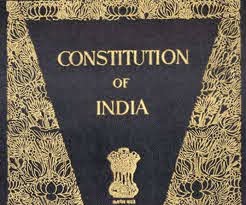
On this Republic Day, it is critically important to know what exactly does a constitution entail. We celebrate the enactment of our constitution, which essentially means that we celebrate the idea that we have agreed to be ruled by a constitution. Any constitution is a set of fundamental rules which are considered inviolable and they are applicable and available to everyone, and they are usually very difficult for the government of the day to amend. The most fundamental of such rules is the rule that we will respect the constitution in its letter and spirit, and be a rule-based society.
Thus, the first and foremost purpose of any constitution is to order a society, which is manifested by the public order exception to most rights guaranteed under a constitution. That is to say that any constitutional right can only be guaranteed up to an extent where it doesn’t disturb the public order. That is the point of presumption of constitutionality of any law, meaning that any law will be presumed constitutional and has to be followed by everyone, unless and until the same has been declared unconstitutional by a Constitutional Court.
Our constitution contains fundamental rights under its part III and they are equally available to every citizen of the country. In certain cases, they are even available to non-citizens. One such right is to freely express themselves under Article 19(1)(a). This when clubbed with right to peaceful assembly and right to form association under Article 19(1)(b) and 19(1)(c) respectively, has been interpreted by the Supreme Court of India to include a right to protest.
Over the last year we have seen the exercise of this right quite exhaustively. In the contemporary discourse one may be made to believe that the constitution is a document which acts like only as a right giver, and hence it is even more important to understand the fundamental purpose of the constitution as a testament to our commitment to follow, not only the rule of law but follow each and every law, until and unless they are declared unconstitutional by a competent court.
This is a problem in the sense that it raises the questions how one is supposed to protest against a law (it being a fundamental right), and also follow it, because there is a presumption of constitutionality. The only logical reconciliation of the two positions is that one may continue to protest against a law, and still follow it till the time it has been declared unconstitutional.
While right to protest is a fundamental right, it is curtailed by the restrictions as envisaged under Article 19(2), which lays out the grounds for curtailment as: the sovereignty and integrity of India, the security of the State, friendly relations with foreign States, public order, decency or morality or in relation to contempt of court, defamation or incitement to an offence. If one were to contextualise the protests which happened in India in the recent past, it can be argued that the protests had violated the exceptions on more than one count. For instance, the Shaheen Bagh protest continued for several months while blocking an important road connecting Noida and Delhi. This is certainly a compromise on public order, and the same was correctly highlighted by the Supreme Court. Similar is the position with respect to the ongoing protest against farm laws, which has again blocked an important road in the national capital region.
The point of a constitutional way of life is that there should be no need of the court to press and clarify that a certain form of protest or expression is unconstitutional. The same should be imbibed in the popular culture of the society, and be followed without investing much effort into it. People must think on their own motion that their right to protest should never come in the way of someone else’s right to access the roads. If one were to look towards the UK, their constitutional position is almost impossible for us Indians to even imagine, as there is neither a written constitution to look up to nor is there a court which can review the laws enacted by the parliament. Yet, the constitutional way of life is entrenched into the value system of the society and very efficiently followed. On each republic day, we must strive to entrench the constitutional provisions in our daily life and value system. That is the only way forward.






توجه به جوانان و والدین به وبسایتهای قمار.
آنها جاها به وسیله طراحی زیبا به
علاوه پول وعده شده، ولی در حقیقت منجر
خسارت گسترده مالی همچنین اعتیاد
روانی میشوند. من از سبب چنین فعالیت کارام را از دست دادم.
خواهشاً هشدار شوید و اجتناب کنید!